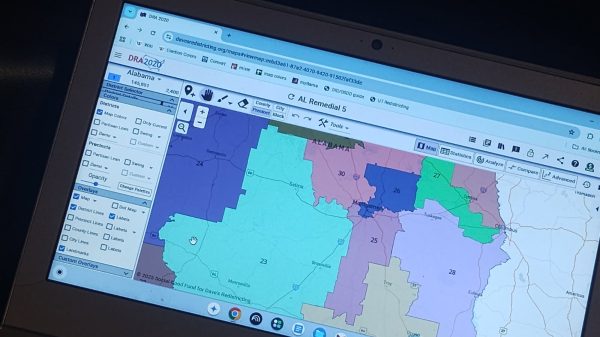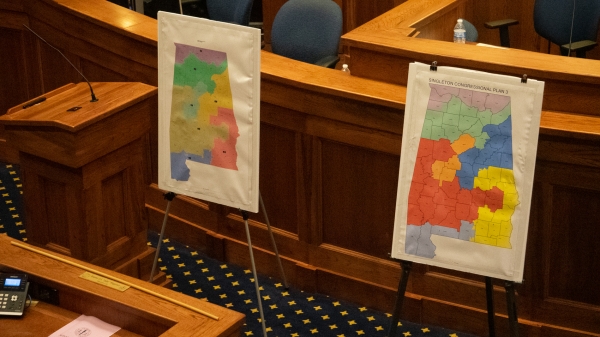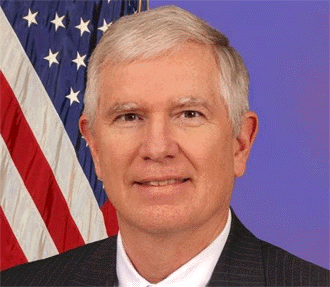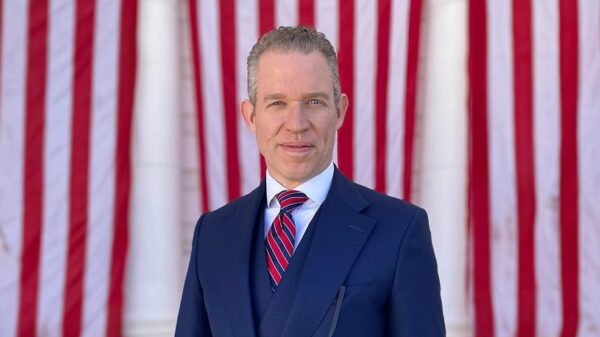By Brandon Moseley
Alabama Political Reporter
On Thursday, Congressman Mo Brooks (R) from Huntsville introduced H.R. 1128, the Protecting U.S. Missile Defense Information Act of 2013. Preventing the White House from leveraging and sharing classified American missile defense technology in negotiations with Russia has been a priority of Congressman Brooks since arriving in the U.S. House of Representatives.
Congressman Brooks said in a written statement, “H.R. 1128 keeps United States missile defense information and technology out of the hands of the Russian Federation. Taxpayers have paid hundreds of billions of dollars to develop this technology and it is too important to our national security to let it fall into the wrong hands. Our hit-to-kill missile technology is the crown jewel of missile defense, and we should never surrender it to foreign states who are not committed allies of the United States.”
Rep. Brooks continued, “In 2011, I introduced and helped pass an amendment to the National Defense Authorization Act that became law and barred the White House from sharing America’s sensitive hit-to-kill missile technology with Russia. In 2012, I attached similar legislation to the Defense Appropriations Bill that is pending in the Senate and should be voted on within the next few weeks.”
Brooks added, “H.R. 1128 supports a vigilant watch against the misuse of classified U.S. missile defense technology by protecting American technology and American lives. If passed, H.R. 1128 will permanently bar any White House from sharing America’s sensitive hit-to-kill missile technology with Russia and, further, will also require the White House to disclose and report on Russian Federation support of the ballistic missile defense programs of China, Syria, Iran, and North Korea.” “I appreciate the support of my fellow Members of Congress in protecting missile defense. Cosponsors to H.R. 1128 include Congressman Mike Turner (OH-10), Chairman of Tactical Air and Land, Congressman Mike Rogers (AL-03), Chairman of Strategic Forces, and other Members of the House Armed Services Committee and House Appropriations Committee.”
Congressman Brooks said that the Protecting U.S. Missile Defense Information Act of 2013 would:
1) Requires that the White House provide the Congressional defense committees with reports and briefings on any discussions between the U.S. and the Russian Federation regarding missile defense.
2) Requires that the White House report to the Congressional defense committees when the National Disclosure Policy Committee meets about declassifying documents containing information on the U.S. missile defense system.
3) Bars any funding to provide the Russian Federation with access to hit-to-kill technology and telemetry data relating to missile defense interceptors or target vehicles.
4) Would limit funds used by the White House to negotiate or implement executive agreements relating to the U.S. missile defense capability except for nations the U.S. already has a treaty of alliance with or a security guarantee
5) Would require that the White House disclose and report to Congress on Russian Federation support of ballistic missile defense programs of China, Syria, Iran and North Korea.
Rep. Brooks told ‘The Alabama Political Reporter’ in a 2012 interview, “Do we really want to share our technology that was so expensive to develop and is so superior to anything else, why would we share that we Russia or anyone? I say no!” “If our foes or potential foes get our hit to kill technology then they are free to develop counter measures.” “This would put our country at risk. As you know the more people know about something the greater the risk that others will find out, it does not have to be leaked intentionally.”
Russia is strongly opposed to the U.S.-engineered anti-missile bulwark that is being built in and around Europe against ballistic missiles that could be fired by countries like Iran. Russia is concerned that a shield could effectively defeat their own missiles and would eliminate the effectiveness of Russia’s own nuclear deterrent force.
The Barack H. Obama administration has not had any progress in getting the Russians to drop their objections to a missile defense shield. The administration believes this cooperation would be in the security interests of the United States, NATO and Russia by strengthening the defensive capabilities of both NATO and Russia. On March 27, 2012 President Obama told then Russian President Dmitry Medvedev, “This is my last election and after my last election I have more flexibility.” Pres. Obama was unaware that a microphone was live so that the President’s remarks were going to the press.
Critics have accused the President of plotting to trade the anti-missile secrets to the Russians for his desired treaty.
Congressman Brooks represents Alabama’s Fifth Congressional District and sits on the House Armed Services Committee as well as the Strategic Forces and Oversight and Investigations Subcommittees.




















































